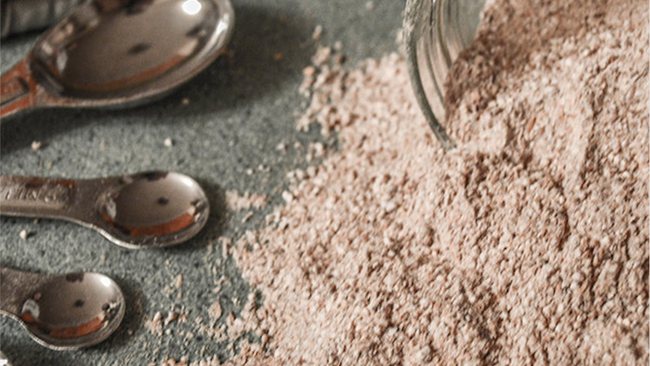The whiskey stillage will be filtered to save the water to be used in a grey water system. Once separated, the spent grain will be dried to keep it from spoiling and then combined with other grains to create a nutritious baking flour. This flour will be sold to local restaurants, bakeries, cafeterias, and other businesses. Our business will make money from selling the flour and also from collecting the stillage from local distilleries and breweries, who are already paying disposal fees to have their spent grain hauled to the landfill.
Stillage from Still Austin Whiskey
Baking flour made from spent grain is nutritious and can be recovered as long as it is correctly handled and processed before spoilage can occur. There are several businesses in the United States that are already recovering spent grain to create baking flours and other edible products with success. Once the collection and manufacturing processes have been established, our business will be sustainable due to the steady supply of spent grain and demand for baking flour.
The volume of stillage from Still Austin will provide a steady supply of grain to be processed. As needed, we can scale by collecting stillage from other distilleries and breweries in the Austin area. There are over 20 distilleries and breweries in Austin that are generating spent grain.
Funding is needed to create and test the infrastructure necessary to collect and process the spent grain. This includes transportation, dehydration, storage, grinding, and packaging.
Crowdsourcing will be used to seek funding, in addition to investment from local distilleries, breweries, and businesses.
Jessica Brown has account management experience at a research organization, which involves creating/executing contracts and working with vendors of all sizes. She will use this experience to cultivate relationships with local distilleries, breweries, and businesses to establish steady supply and demand of spent grain and processed flour, respectively.
Our team will need a technical specialist for the manufacturing process, a nutritionist to experiment and analyze the final product, and a transportation specialist that will handle the logistics of collecting large quantities of stillage several times per week.
This business will create a minimum of 8 jobs in Austin, with varying levels of skills needed. We would have 4 skilled leaders in the following roles: Executive, Manufacturing, Nutrition, and Collection. At least one entry-level employee will assist and learn from each lead and be paid a living wage.
Local businesses that use grain flour in their products will be able to purchase and incorporate a locally produced and recovered resource. Local businesses that produce spent grain will be able to divert their waste from the landfill and support job growth by having our company collect their stillage.
The spent grain is edible and nutritionally valuable, so its highest and best use is for human consumption. While animal feed and compost allow for the spent grain to be diverted from the landfill, these uses still create waste in the form of nutrient loss and poorly allocated resources. Our company will use renewable energy wherever possible to minimize our carbon footprint. This potentially includes solar powered dehydrators (funding is needed to create and test a prototype) and bio-diesel collection vehicles. When electricity is required, the source will be considered and solar/wind energy will be purchased as available.
